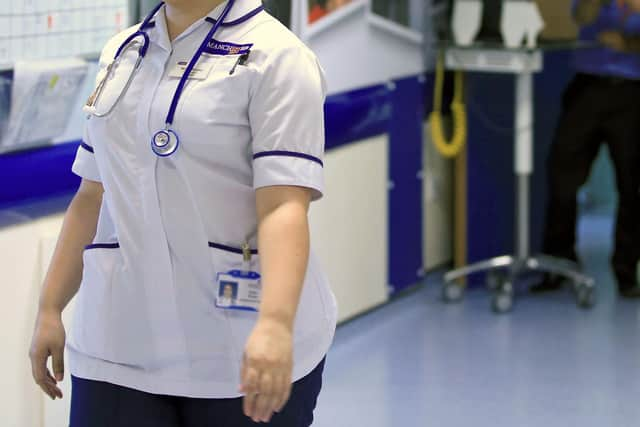Monkeypox: are cases still rising in the West Midlands?
This article contains affiliate links. We may earn a small commission on items purchased through this article, but that does not affect our editorial judgement.
and live on Freeview channel 276
Cases have risen rapidly across the UK since mid-May with the most recent figures showing more than 23,000 cases have been recorded in almost 90 countries.
Last week, the World Health Organisation (WHO) declared it a Public Health Emergency of International Concern – the highest level of alert.
Advertisement
Hide AdAdvertisement
Hide AdThe South West had the highest increase with cases by 14.9%. This was followed by the North West which saw cases jump by 14.3%. And the South East also saw cases rise by 14.2%.
The figures also show that cases of monkeypox are still rising across the West Midlands.
Cases of the disease increased by more than 30% in the West Midlands at the end of July, which higher than anywhere else in England.
But the latest data (1 August) from the UK Health Security Agency (UKHSA) shows that there have been 7 new cases recorded in the region.
Advertisement
Hide AdAdvertisement
Hide AdThis means cases increased by 10.1% in four days. This was the sixth highest increase out of the regions across the country.


How is it spread?
The monkeypox virus is usually a mild illness that will get better on its own without treatment, but some people can develop more serious symptoms, so patients with monkeypox in the UK are cared for in specialist hospitals.
However, there have only been a very small number of cases of monkeypox in the UK and when there is a case, health professionals will aim to contact anyone who has been in close contact with the infected person.
The UKHSA said the outbreak has been largely identified in gay or bisexual men, and other men who have sex with men without documented history of travel to endemic countries. Where gender information was available 99.3% of cases were male and 18 were female. The median age of confirmed cases in the UK was 37 years.
Advertisement
Hide AdAdvertisement
Hide AdThe NHS website says: “If you have not been contacted, be reassured you are extremely unlikely to catch monkeypox.”
Monkeypox does not spread easily between people, but it’s possible to catch it from: touching items like clothing, bedding or towels used by an infected person, touching monkeypox spots or scabs, a person with a monkeypox rash who coughs or sneezes near you.
A message from the editor:
Thank you for reading. BirminghamWorld is Birmingham’s latest news website, championing everything that is great about our city - reporting on news, lifestyle and sport. We want to start a community among our readers, so please follow us on Facebook,Twitter and Instagram, and keep the conversation going.
Comment Guidelines
National World encourages reader discussion on our stories. User feedback, insights and back-and-forth exchanges add a rich layer of context to reporting. Please review our Community Guidelines before commenting.
